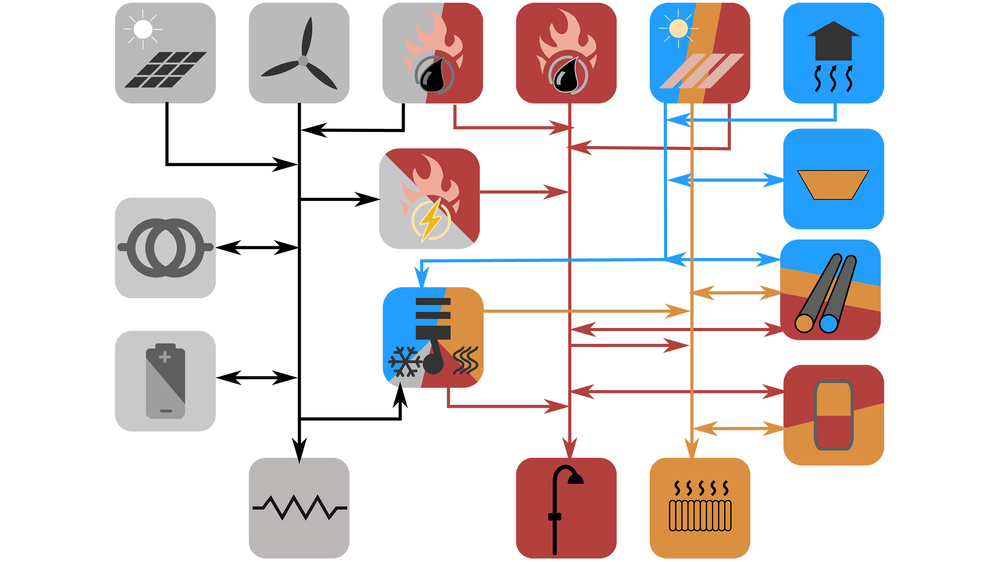Energy Systems Technology
The Energy Systems Technology department focuses on the interaction between system-relevant technologies within decentralised networked structures, particularly at the low-voltage and medium-voltage level.

Our future energy system is essentially based on renewable energies from the sun and wind. Utilised directly, they are efficient and cost-effective. Smart operational management makes it possible to utilise storage potential and flexibility in the electricity, heating and mobility sectors in order to align consumption as precisely as possible with the availability of renewable energy. Realising this places high demands on the design and operational management of future local energy systems, from individual properties to neighbourhoods and even entire districts.
The Smart Energy Management research group develops methods and strategies to optimise the operation and design of future energy systems hand in hand. In order to develop cost-effective and low-emission systems in the long term, we take into account both current framework conditions (e.g. taxes, levies and legislation) and future scenarios (e.g. climate scenarios, scenarios for international hydrogen trading or price curves). To ensure that heat pumps, electric vehicles and other technologies (in addition to their respective purpose) can contribute to a secure and efficient energy supply in the future, we are working on fundamental methods to utilise the inherent flexibility of such systems for the overall system.
In numerous third-party funded projects, we use the MTRESS (Model Template for Renewable Energy Supply Systems) simulation model developed in-house, which perfectly coordinates the operating strategy and dimensioning of the energy systems in the neighbourhood. Multi-criteria optimisation enables us to take into account not only costs, but also emissions, grid friendliness and other indicators. As part of a project, for example, we used scalability as a target parameter for our optimisation in addition to costs in order to identify suitable heat supply concepts for widespread use in residential buildings. Analysing the target values for various climate scenarios enabled us to assess the robustness of these concepts in the face of climatic changes.
